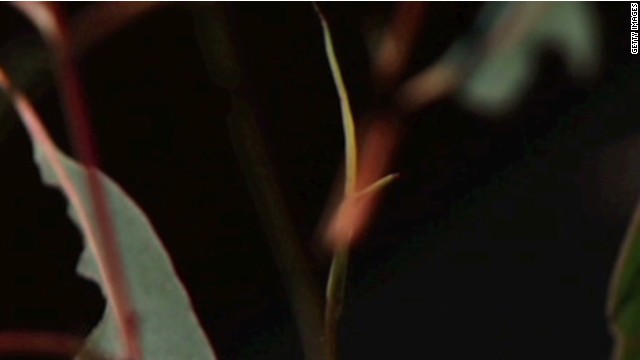Scientists find gold growing in trees in Australia

Look, gold does grow on trees!
- The roots of eucalyptus and acacia trees dig deep into bedrock in search of water
- They absorb gold particles that are then deposited in their leaves
- Researchers say the findings might improve gold prospecting
(CNN) -- Parents beware: You're about to have one less idiom in your repertoire. Scientists in Australia have discovered gold deposits on eucalyptus trees in the Outback.
Yes, you read that right -- money can actually "grow" on trees.
While it's not new that plants and trees absorb minerals such as gold through their leaves, scientists had previously been unable to prove that the minerals in question came from deeper underground and not from surface soil deposits. The paper's authors hope that their findings will turn into a trusted form of gold prospecting.
According to the paper, eucalyptus and acacia trees, such as the ones studied at the Freddo and Barns Gold prospects in Western and South Australia respectively, have deep and extensive root systems. In times of drought, their roots dig deep in search of water. So deep, in fact, that some trees have literally struck gold.
The findings, which were published this week in the online journal Nature Communications, show how biogeochemical absorption of gold is possible. This, according to the researchers, could lead to new and more successful prospecting methods.
Now before you grab your passport and ax, the paper found an average gold concentration of 80 parts per billion in tree's leaves, and a mere 4 parts per billion in bark (though bark does cover a larger surface area). Unfortunately, this means the gold isn't visible to the naked eye.
So the next time someone tells you money doesn't grow on trees, well, you know what to say.
